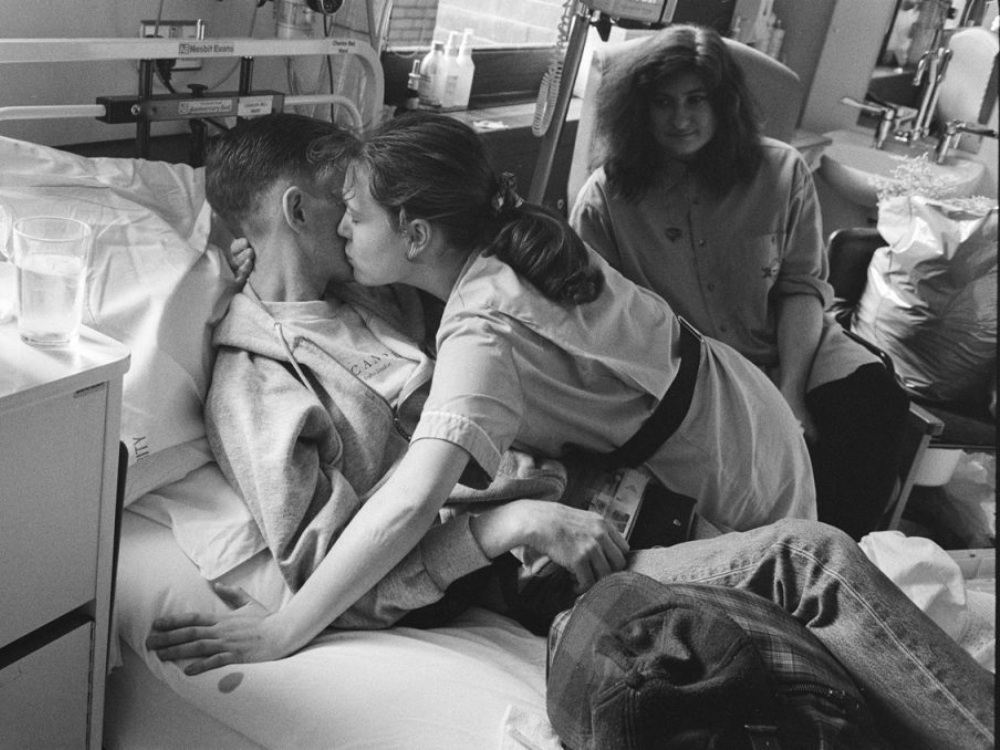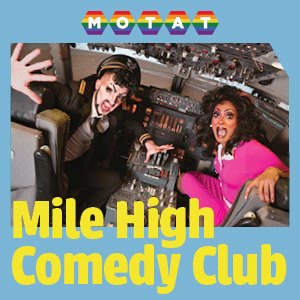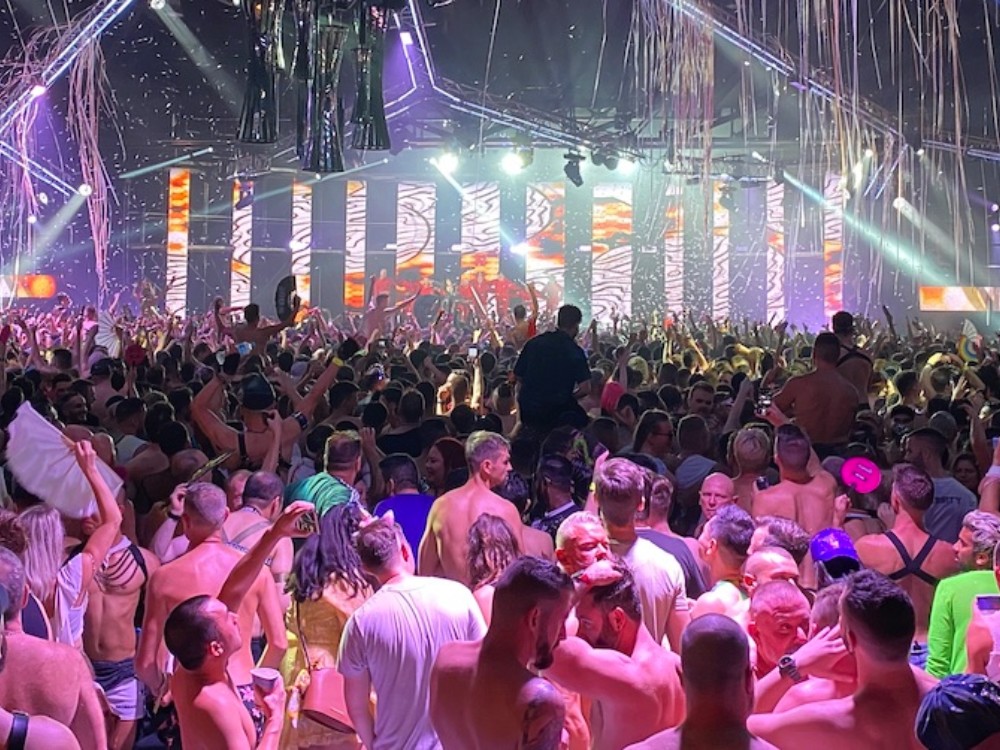Jessie Lewthwaite notes how far our communities have come by standing together, united as one.
When I was living in rural Australia, there wasn’t a whole lot to do, so my girlfriend and I found ourselves wandering the local Kmart on a Friday night. Browsing without purpose, I suddenly heard the sound every teacher dreads ring out behind me: “Miss Lewthwaite!” I turned to see one of my senior students running towards me.
She was thrilled to see me outside school and wasted no time telling me about a new story she was working on. At the time, I was a creative writing teacher at an all-girls Catholic high school, and she was one of my top students. She called her dad over to meet me, and I shook his hand, just as my girlfriend walked up to us. From the look on her dad’s face, I knew this wasn’t going to end well.
Sure enough, the next day, I was in the principal’s office being dismissed. In Australia, it is legal for religious schools to fire queer staff on the grounds that we don’t uphold their ‘values’. This father had taken his daughter’s enthusiasm for my class as proof I was ‘grooming her to be gay’. Needless to say, I never worked at a religious school again.
Historically, it was illegal to be a teacher if you were queer. We were seen as a danger to the youth.
Although my experience is far from unique, it is less likely to happen to cis lesbians than to others within the queer community. Lesbians aren’t as often smeared with the heinous labels hurled at our community by hard-right religious bigots. The label ‘groomer’ and the grotesque association with paedophilia are more frequently targeted at gay and bi men, and our trans whānau.
That’s mostly rooted in misogyny. Lesbians are seen as weak, confused women who just need a strong man to ‘fix’ them. But I don’t think anyone who’s actually met a lesbian could possibly call us weak. Clearly, these people have never been to a rock climbing gym on a Sunday.
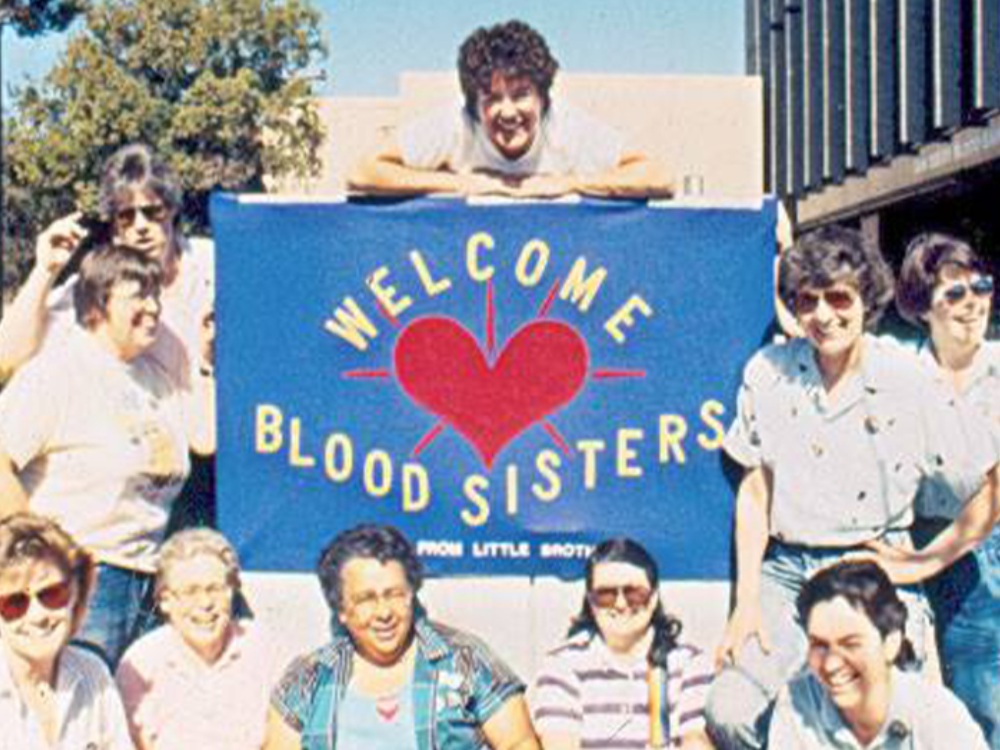
In the 1980s, during the AIDS crisis—while the government looked the other way—lesbian nurses stepped up. Many straight nurses at the time refused to care for gay men, even those who weren’t HIV positive, out of ignorance and fear. But the lesbians were there for our brothers, unafraid to hold the hands of men who were suffering. Lesbians also led protests to raise awareness of the crisis and launched groups like the Blood Sisters, who organised massive blood donation drives to ensure our sick brothers had access to life-saving transfusions. Our impact and compassion during this time is a huge part of why we are honoured with the first letter in the LGBTQ+ acronym.
Throughout the ongoing struggle for human rights, lesbians have consistently shown up. We’ve yarn-bombed in political protest, quilted over 50,000 memorial panels for lives lost to AIDS, marched, nurtured, and spoken truth to power in defence of our rainbow family.
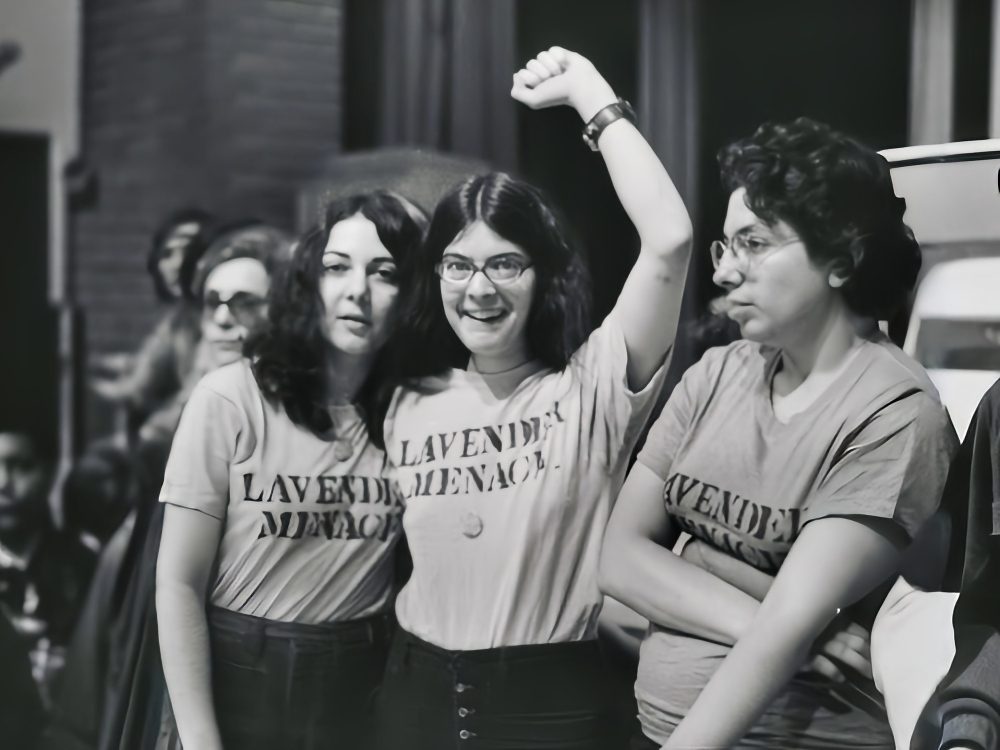
I know the world feels frightening right now. It seems like every day brings news of another cruel policy of exclusion. That’s why I urge all sapphic women to embrace our proud history—and to reclaim the nickname given to us by those who would deny us, and our queer whānau, our rights.
Long may the Lavender Menace rise.











